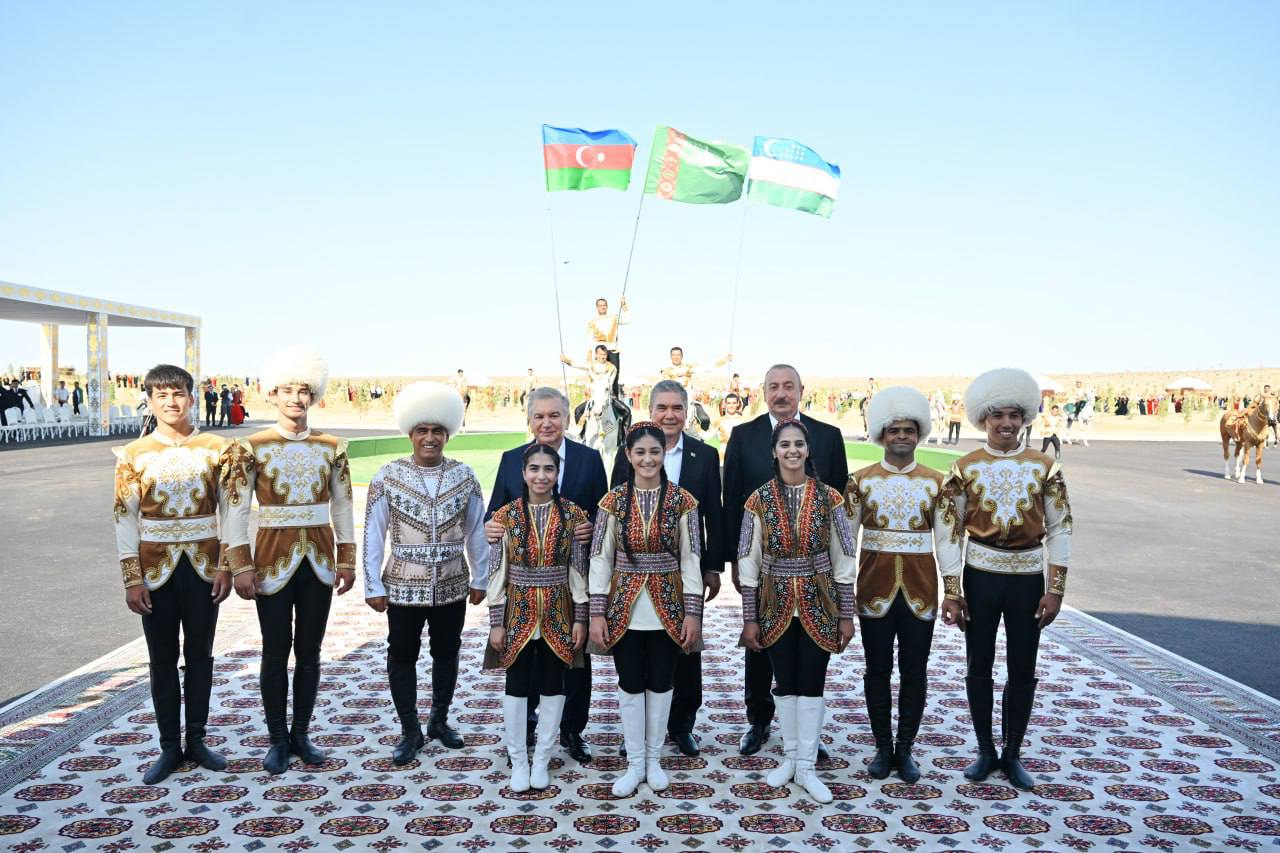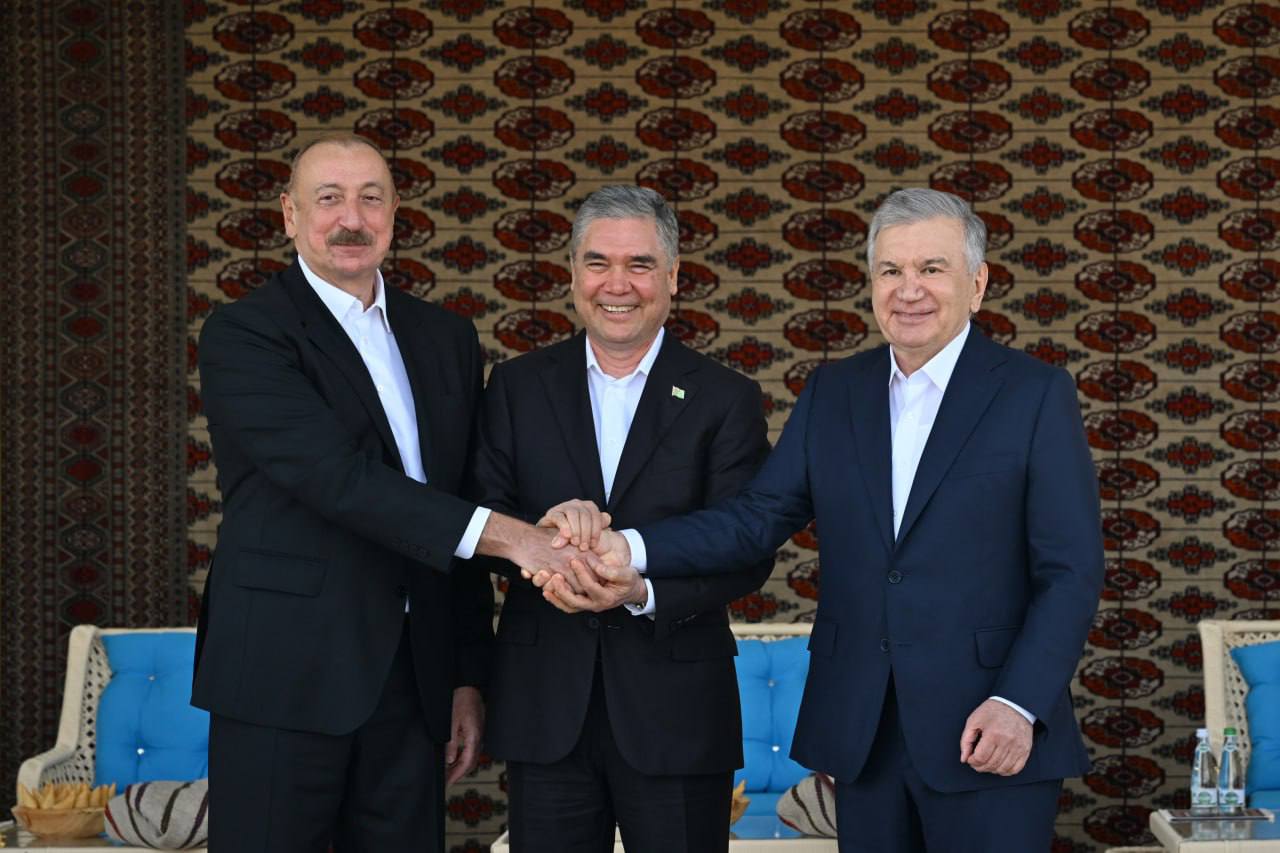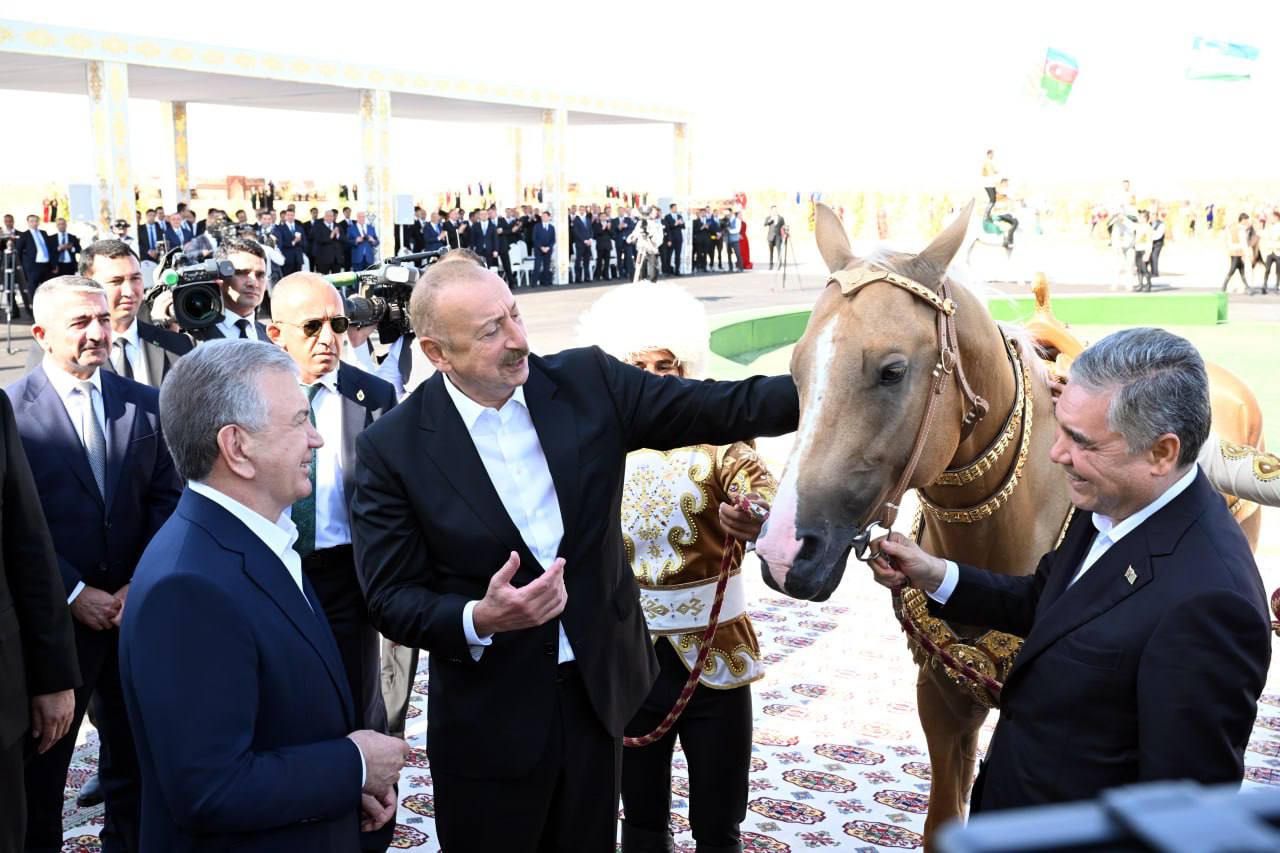The Power of Unity: cooperation among Uzbekistan, Turkmenistan and Azerbaijan
22.08.2025

In today’s globalized world, interstate cooperation plays a crucial role not only in economic development but also in ensuring regional stability and a strong position in the international arena. In this regard, the friendly relations and strategic partnership between the Republics of Uzbekistan, Turkmenistan, and Azerbaijan are gaining new meaning and momentum.
First of all, it should be noted that one of the main unifying factors among Uzbekistan, Turkmenistan, and Azerbaijan is their common historical roots, cultural closeness, and spiritual values. The peoples of these nations are bound by ties of kinship, and centuries of friendship, trade, and cultural exchange continue to serve as a solid foundation for today’s cooperation.
Secondly, the expansion of regional economic relations is opening new opportunities for all three republics. Their joint initiatives in the development of transport and communication networks, particularly in the creation of international transit corridors, are of great importance. For instance, routes crossing the Caspian Sea, the Trans-Caspian International Transport Corridor project, and cooperation in the fields of energy and trade are all accelerating the region’s integration into the global economy.
Thirdly, the intensification of political dialogue is another key aspect of their cooperation. Leaders of Uzbekistan, Turkmenistan, and Azerbaijan, during their mutual meetings, discuss not only bilateral but also multilateral cooperation. Their agreements are contributing to regional security, sustainable development, and mutual support within international organizations.
At today’s trilateral meeting held in the “Avaza” national tourism zone, President of Uzbekistan Shavkat Mirziyoyev, the National Leader of the Turkmen people and Chairman of the People’s Council Gurbanguly Berdimuhamedov, and President of Azerbaijan Ilham Aliyev addressed these issues.
They reviewed matters of multifaceted cooperation in trade, economy, transport-communications, energy, and the humanitarian sphere.
At the beginning of his speech, our President sincerely congratulated Gurbanguly Berdimuhamedov on the successful hosting of the Third UN Conference on Landlocked Developing Countries earlier in August.
The President of Uzbekistan also warmly congratulated Azerbaijan’s leader Ilham Aliyev on the recent signing of the peace declaration with Armenia in Washington.
Our Head of State put forward a number of concrete proposals to further expand multifaceted cooperation.
An effective aspect of this partnership is that it strengthens cultural and humanitarian ties, further reinforcing the bonds of friendship between the peoples. Joint projects in science, education, and culture, as well as youth exchange programs, play an important role in the future development of these three brotherly nations.
In today’s world, state borders are increasingly leaning toward integration rather than economic isolation, drawing nations closer through roads, railways, and sea routes. In particular, within the framework of the Ashgabat Agreement, Uzbekistan is becoming integrated into regional transport routes alongside Turkey, Iran, India, Pakistan, Kazakhstan, and even Afghanistan. This agreement opens new transit opportunities across the region stretching from Khorezm to the Caucasus.
The “trilateral unity” is also producing results in the energy sector through pipelines and gas swap deals. Turkmenistan is the leading supplier of natural gas in Central Asia. In 2022, its gas exports to China amounted to about 34 billion cubic meters. Moreover, part of Turkmenistan’s gas is swapped via Iran to Azerbaijan, which signifies close energy cooperation between the two countries.
The same can be said about international communication through tourism. The cooperation of this “trilateral unity” in transport and energy strengthens regional interconnection while also enhancing their role in the global arena. The Ashgabat, Lapis-Lazuli, and North-South corridors occupy a central place in their economic strategies.
At the meeting, the importance of fully utilizing the enormous transit potential of the three countries was emphasized.
In addition, it was noted that joint efforts would help establish pragmatic cooperation with donor countries and international organizations that could contribute to the development of logistics infrastructure.
This “Power of Unity”—through the development of transport, expansion of ports, gas swap agreements, and growing tourism flows—is activating new channels of communication. The leaders of these three countries are reinforcing their bonds of friendship not only with political statements but also through economic and cultural initiatives.
In conclusion, the sincere dialogue, mutual respect, and interest-based policies among the leaders of Uzbekistan, Turkmenistan, and Azerbaijan vividly demonstrate the “power of unity.” This strength is serving as an important factor in ensuring stability, development, and prosperity not only in our region but throughout the entire Eurasian space.
Rakhimboy Jumaniyozov
Professor, Member of the Writers’ and Journalists’ Unions of Uzbekistan







